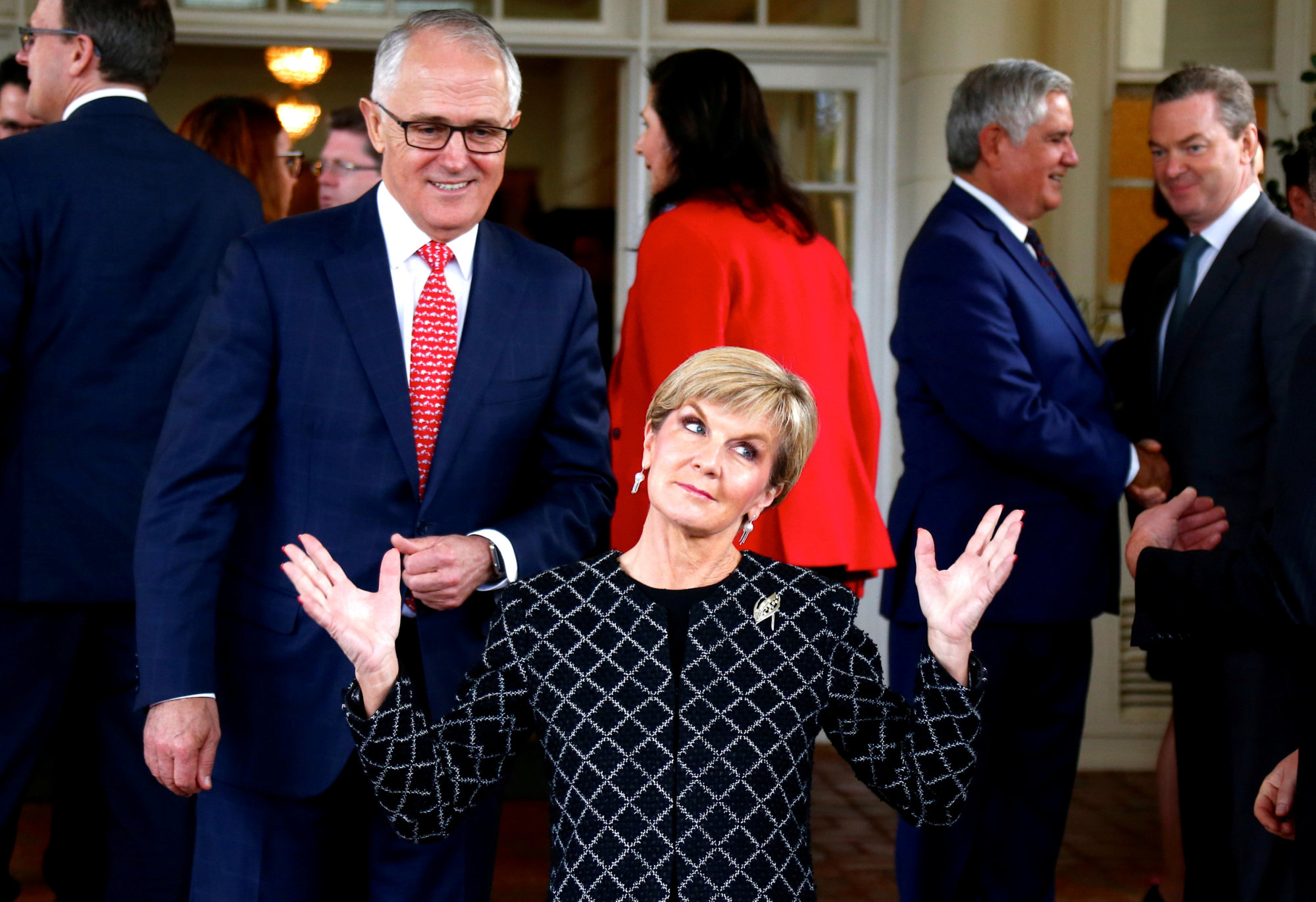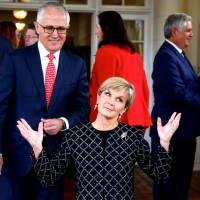Australian Prime Minister Malcolm Turnbull appointed Foreign Minister Julie Bishop as deputy prime minister on Saturday after a citizenship crisis ousted his deputy and cost his government its parliamentary majority.
Turnbull had been scheduled to fly to Israel on Friday for a weeklong visit but was unable to leave without a deputy to assume the role of acting prime minister in his absence.
His departure has been delayed until Monday, he told media in Sydney on Saturday.
"It's very important to recognize that, contrary to some of the dramatic speculation in the media, that the government has a majority in the House of Representatives," Turnbull said.
Australia's High Court ruled on Friday that Deputy Prime Minister Barnaby Joyce and four other lawmakers were ineligible to remain in Parliament because they held dual citizenship at the time of the last election.
Turnbull's center-right coalition is now in a precarious position. His Liberal Party is the senior party in a coalition with the smaller National Party, which Joyce led.
He must now win the support of one of three independent lawmakers to keep his minority government afloat, with two sitting weeks of Parliament left until it recesses for the year. At least two independent lawmakers have promised their support.
Joyce has renounced his New Zealand citizenship and will run in a Dec. 2 by-election that is expected to return him to Parliament and his position as deputy prime minister.
The Nationals have appointed Indigenous Affairs Minister Nigel Scullion as interim parliamentary leader until the results of the by-election have been determined.
Bishop was appointed as interim deputy prime minister as the second-highest ranking Liberal Party member, after Turnbull.




















With your current subscription plan you can comment on stories. However, before writing your first comment, please create a display name in the Profile section of your subscriber account page.